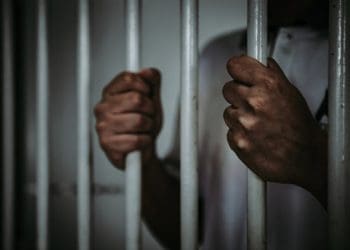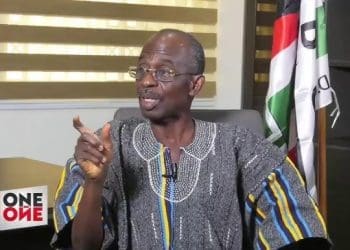Kow Abaka Essuman, Former Acting Secretary to the President and Former Legal Counsel to the President, has demanded that President John Dramani Mahama immediately release the full report and proceedings of the committee that recommended the removal of Chief Justice Gertrude Araba Sackey Torkornoo.
According to Essuman, the people of Ghana have a constitutional right to know how such a momentous decision—one that ended the career of the head of the Judiciary—was reached. He insisted that the report of the Article 146 Committee, together with all petitions, responses, witness testimonies, and records of consultations with the Council of State, must be made public without delay.
“These records are no longer shielded by confidentiality under Article 146(8),” Essuman argued. “Any attempt to withhold them would contradict the binding precedent in Dery v. Tiger Eye P.I., a Supreme Court decision that makes disclosure mandatory once proceedings are completed.”
Transparency and accountability not optional
Essuman stressed that in any constitutional democracy, transparency and accountability are not optional but binding obligations.
The public, he said, are sovereign stakeholders in governance and must be given access to decisions that touch the sanctity and independence of the Judiciary.
“To insist otherwise, as has been suggested by the Minister for Government Communications, is constitutionally indefensible,” Essuman stated.
“The people deserve to know what transpired in the removal of their Chief Justice.”
Supreme Court has already spoken
Citing Dery v. Tiger Eye P.I. & Others [2015–2016] 2 SCGLR 812, Essuman explained that the constitutional requirement of confidentiality during committee hearings is temporary, not permanent.
Quoting the Court, he said: “Once the Committee’s work is concluded and it has submitted its report, the constitutional injunction no longer applies.”
He emphasized that the Supreme Court had been unequivocal: the public’s right to know is only postponed until the process is complete. At that point, disclosure is not only permissible but required.
No constitutional bar to disclosure
Essuman also argued that nowhere in the Constitution is the President prohibited from releasing the report of a removal committee.
On the contrary, once the proceedings are completed, the constitutional obligation to maintain confidentiality “dissolves,” and a new obligation arises to disclose in the interest of accountability.
“The Constitution does not expressly forbid publication,” he said. “Instead, the Supreme Court has affirmed that disclosure is consistent with democratic principles.”
Eminent witnesses testified
The significance of the process, Essuman noted, is underscored by the calibre of Ghanaians who testified before the Committee in defence of Justice Torkornoo.
These included former Chief Justices Sophia Akuffo and Kwasi Anin Yeboah, legal scholar Nana Dr. S.K.B. Asante, senior lawyer Sam Okudzeto, and litigator Justin Amenuvor.
“With such eminent voices and the gravity of the issues, it is imperative that the public be apprised of the evidentiary basis for the Committee’s conclusions,” Essuman said. “This is not mere curiosity; it is constitutional principle.”
He argued that disclosure would also protect the reputations of the Judiciary and the Presidency while deterring politically motivated petitions against senior judges in the future.
Precedents of openness
Essuman drew on recent examples where full reports were released in the interest of transparency. In the Martin Amidu v. Special Prosecutor matter, he recalled, Justice Torkornoo herself found no prima facie case against Amidu.
When the former Special Prosecutor requested a copy of the report, President Akufo-Addo released it in full.
Similarly, during the SML audit matter, President Akufo-Addo made the full KPMG report public, citing the importance of accountability.
Under his administration, Essuman added, all prima facie determinations made in response to petitions against Chief Justices were also disclosed in full.
“These examples demonstrate a commendable tradition of transparency which President Mahama must now follow,” he said.
The way forward
Essuman insisted that President Mahama must release four categories of documents the full report of the Article 146(6) Committee, all records of proceedings, including witness testimonies, the petitions and responses submitted by Justice Torkornoo; and records of the President’s consultations with the Council of State and his prima facie determination.
Transparency as a moral imperative
Concluding his argument, Essuman stressed that public confidence in the justice system depends not only on outcomes but also on the openness and fairness of processes.
“The people of Ghana deserve to know how decisions about the removal of the head of the Judiciary were made. Releasing these documents is not just a legal obligation—it is a moral and democratic imperative.”
He added: “Transparency is not a threat to justice. It is its lifeblood. Let the truth come to light.”












